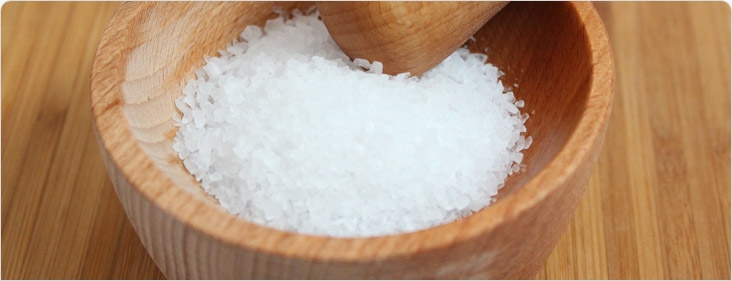
All About Salt
Most Americans get too much salt in their diet—here a few ways to cut back
HOW MUCH IS TOO MUCH?
Eating too much salt can be bad for your health. The sodium in salt can raise your blood pressure, leading to a number of problems such as stroke, heart disease, and kidney disease.
Most people eat 3300 mg to 4200 mg of sodium per day, while the recommended dose is less than 2300 mg of sodium a day (about 1 tablespoon). Eating less salt can help. But, if you are African American, have high blood pressure, diabetes, or chronic kidney disease, or you are older than 51, you are recommended to aim for 1500 mg per day.
Most foods have a small amount of natural sodium, though processing adds much more. For instance, fresh vegetables have 1 to 70 mg of sodium; canned vegetables have 140 to 460 mg.
SMART WAYS TO REDUCE SALT
You may want to try the following tips to help you cut your sodium intake:
- Choose fresh or frozen vegetables and meats
- When you eat prepared foods, use ones that say low sodium or no salt added. Low sodium is less than 140 mg of sodium per serving
- Choose cereals that are low in sodium
- Avoid cured foods like bacon. Also avoid pickled foods and condiments
- Foods like soy sauce should be used with care, even if the label says reduced sodium. A food can be sold as reduced sodium even if it has 3/4 of the sodium in the normal version
- Cook rice and pasta without salt
- Cut back on pre-made foods and prepare most of your meals at home
- When you use canned foods, rinse them before you serve; this can reduce the amount of sodium
- Instead of salt, use other spices such as herbs, lemon, and salt-free blends. Cut salt in half when you cook
REDUCING SALT WHEN YOU DINE OUT
Many restaurants use a lot of salt. You can use these tips when you eat out:
- Ask how your food will be prepared and that it be made with no salt or monosodium glutamate (MSG)—a popular flavor enhancer especially found in Chinese food. Most restaurants will do as you ask
- Watch for words that come with extra sodium: pickled, cured, smoked, soy sauce, and broth
- Don’t touch the salt shaker
- Limit condiments
- Skip salty snack foods. Choose fruit or vegetables instead
